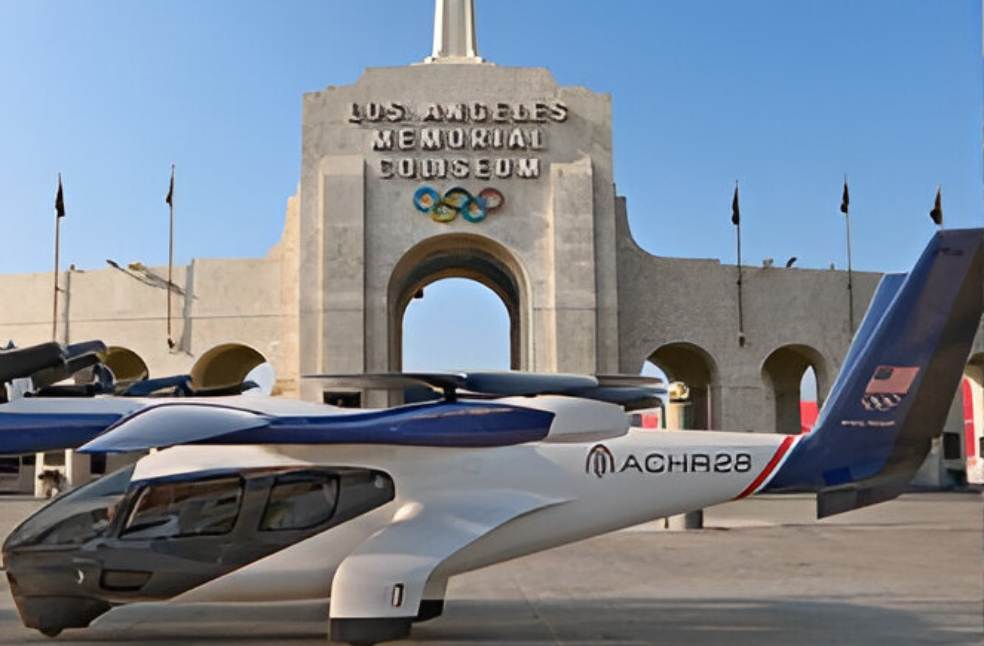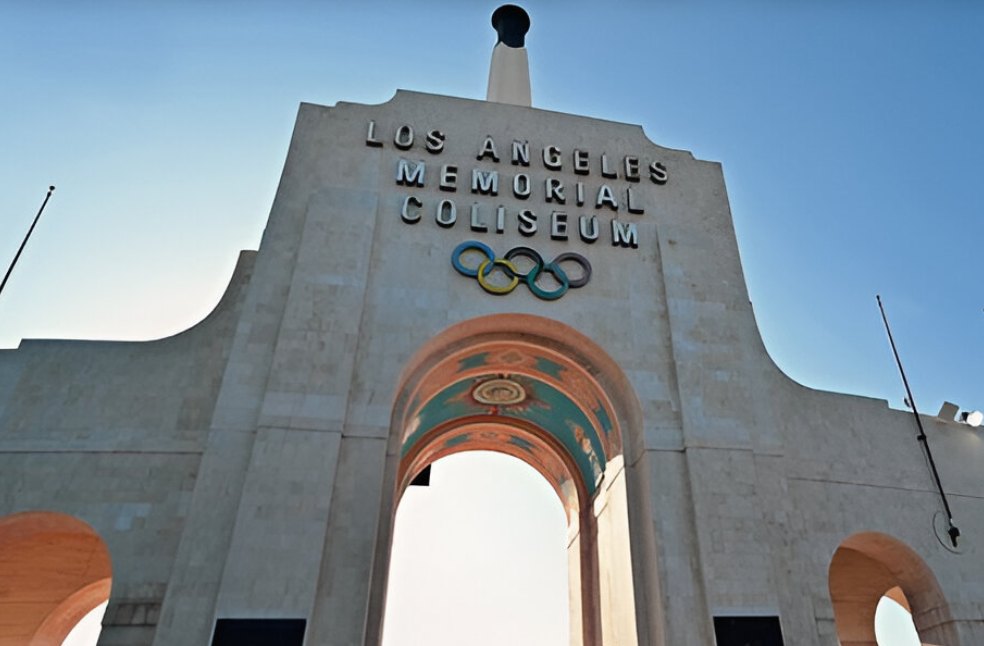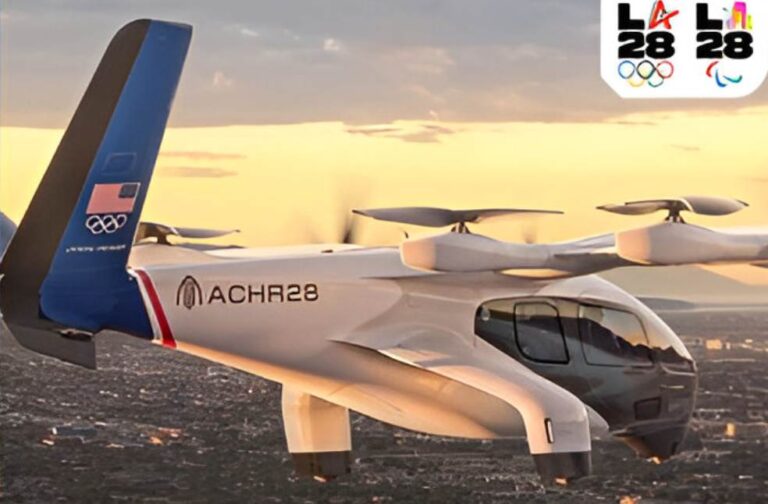Los Angeles: Olympic spectators may soon escape LA’s infamous gridlock by taking to the skies, thanks to a new partnership between LA28 and Archer Aviation. The committee organising the 2028 Olympic and Paralympic Games has announced plans to launch an air taxi service that would ferry fans between key venues.
The electric aircraft, known as ‘eVTOLs’ (electric vertical take-off and landing vehicles), are being developed by Archer Aviation, a startup backed by United Airlines and Boeing. If approved by the U.S. Federal Aviation Administration (FAA) in time, the piloted Midnight aircraft could offer short, 10–20 minute flights across the Los Angeles area, revolutionising Olympic transportation.

LA28 revealed the collaboration, emphasising its potential to redefine urban travel. Riders would be able to book flights using a mobile app, similar to how one hails an Uber. Each aircraft would carry up to four passengers and promise reduced noise and emissions compared to helicopters.
Pricing details remain uncertain, but Archer CEO Adam Goldstein conveyed that he expects fares comparable to a high-end Uber ride. The company aims to receive FAA type certification, confirming the aircraft meets strict design and safety standards within the year.
Flying taxis were originally slated to debut during the 2024 Paris Games but failed to secure certification in time. Archer hopes to avoid a similar fate, positioning the 2028 Summer Games as a launchpad for this new era of mobility.

Goldstein remarked that, “This is our chance to transform the way people get around Los Angeles and leave a legacy that shapes the future of transportation in America.”
While the promise is bold, the sector faces ongoing challenges, from battery efficiency to regulatory approval. So far, no eVTOLs have received full FAA certification, although curiosity remains high across the globe. In 2024, the UK government forecasted that flying taxis could become a regular feature in British airspace by 2026.
As LA prepares to host its third Summer Olympics after 1932 and 1984, the city has pledged a car-free experience, despite stalled plans to expand its public transit infrastructure. The prospect of airborne shuttles could provide a futuristic solution to a decades-old transportation headache.
Whether air taxis will be ready to lift off by 2028 remains uncertain. But if they are, the skies above Los Angeles might offer more than just a view, they could be the fastest ticket to the Games.



